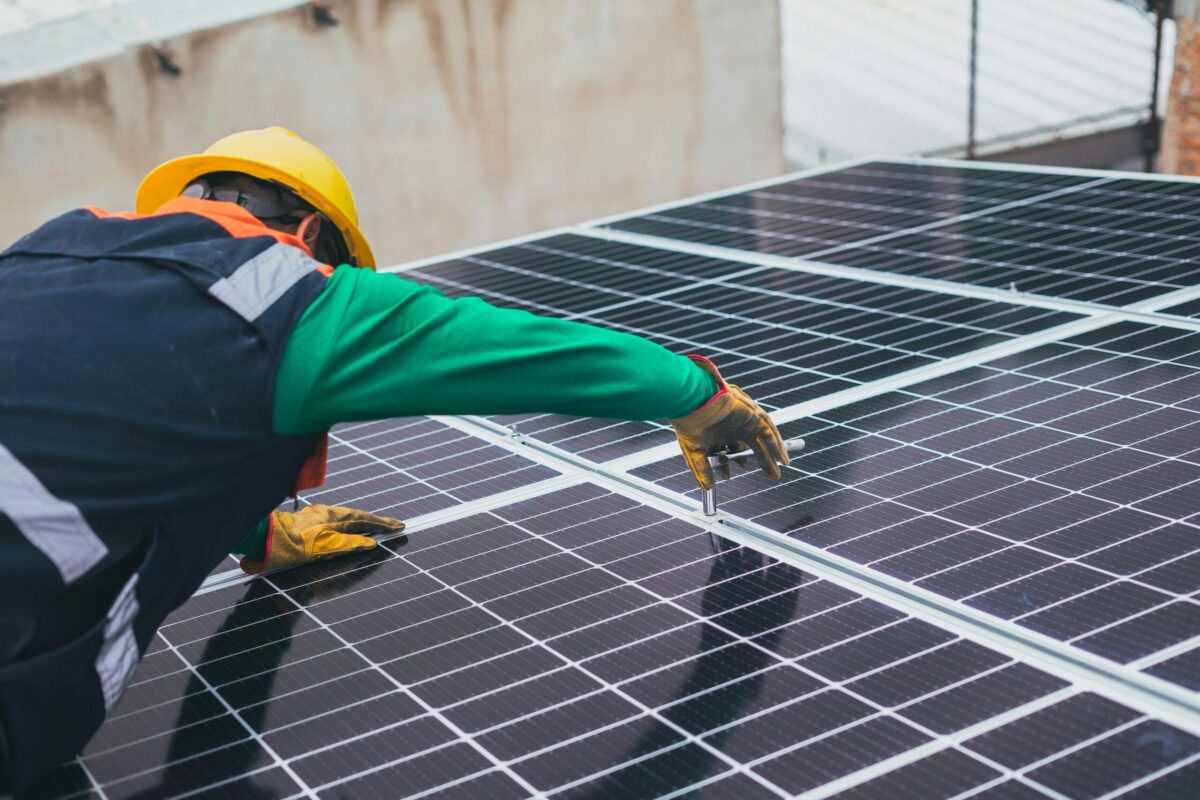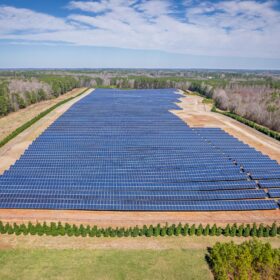Just as in 2012 and 2014, rival camps are going to bat about the potential outcome of a trade case being investigated by U.S. authorities. And just as in those cases, no one really knows what is going to happen.
The Solar Energy Industries Association (SEIA) tried to mediate in the two sides and come up with a negotiated solution in both rounds of trade cases initiated by petitions from SolarWorld and other U.S. manufacturers. However, this time it is going in with guns blazing.
Today the trade group issued a warning that it expects 88,000 jobs to be lost in the U.S. solar industry, or roughly 1/3 of the current workforce, if Suniva is able to obtain the conditions that it proposed in its filing for the Section 201 petition.
In that petition the bankrupt U.S. solar cell and module maker requested a minimum import price of $0.40 per watt on cells and $0.78 per watt on modules. This is roughly double the average prices quoted by GTM Research and SEIA in their Q1 report on the U.S. market.
This follows on an estimate by IHS Markit that under a “worst-case” scenario U.S. PV demand will contract 60% through 2021. GTM Research has stated that the petition would put in danger of cancellation 11 GW of projects with power contracts that were signed under the assumption of the existing path of module price declines.
Christian Hudson, Suniva’s counsel, disputed SEIA’s numbers.
“First we heard the scare tactic that 260,000 jobs were in jeopardy,” Hudson said. “Now we hear a revised number of 88,000 – and while this is yet another inaccurate scare tactic, at this rate we might hear accurate numbers by the end of summer.”
SolarWorld Americas, which joined the petition in May, notes that such warnings were made in the 2012 and 2014 cases. “Opponents of trade relief made the same types of claims in each of the last two rounds of trade cases, but the solar industry continued to grow, proving their dire warnings erroneous,” SolarWorld Americas Head of Corporate Communications Ben Santarris told pv magazine.
The main opposition in the 2012 and 2014 trade cases was the Coalition for Affordable Solar Energy, represented by Jigar Shah, which warned that U.S. import duties on Chinese PV cells and modules would damage the U.S. solar market and cost jobs. However, despite this warning the U.S. solar market has grown by more than 1 GW every year since 2010.
It is also true that the SolarWorld-led Coalition for American Solar Manufacturing (CASM) said that such tariffs would enable the growth of U.S. solar manufacturing; however despite the two rounds of import duties the U.S. share of global solar cell and module manufacturing continues to fall. At the same time the share of imported modules from Malaysia and other parts of Southeast Asia, which including modules produced in the facilities of American companies First Solar and SunPower, rose sharply after 2012.
However, citing the predictions made by both sides in the previous trade cases may miss the significant differences between the 2012 and 2014 anti-dumping and anti-subsidy investigations and today’s Section 201 case.
The Section 201 process is substantially different in at least two major ways. First, the 2012 and 2014 cases only applied to cells and modules from China and later Taiwan, whereas restriction imposed under the Section 201 process can apply to products from any foreign nation. Second, while the U.S. Department of Commerce and International Trade Administration had the authority to levy anti-dumping and countervailing (anti-subsidy) import tariffs, under Section 201 the Trump Administration has broad powers to impose any sort of trade remedy it sees fit.
Update: This article was updated at 2:20 pm EST on 6/16/17 to update SolarWorld’s Ben Santarris’ title and add a comment from Suniva’s counsel Christian Hudson.
This content is protected by copyright and may not be reused. If you want to cooperate with us and would like to reuse some of our content, please contact: editors@pv-magazine.com.









By submitting this form you agree to pv magazine using your data for the purposes of publishing your comment.
Your personal data will only be disclosed or otherwise transmitted to third parties for the purposes of spam filtering or if this is necessary for technical maintenance of the website. Any other transfer to third parties will not take place unless this is justified on the basis of applicable data protection regulations or if pv magazine is legally obliged to do so.
You may revoke this consent at any time with effect for the future, in which case your personal data will be deleted immediately. Otherwise, your data will be deleted if pv magazine has processed your request or the purpose of data storage is fulfilled.
Further information on data privacy can be found in our Data Protection Policy.